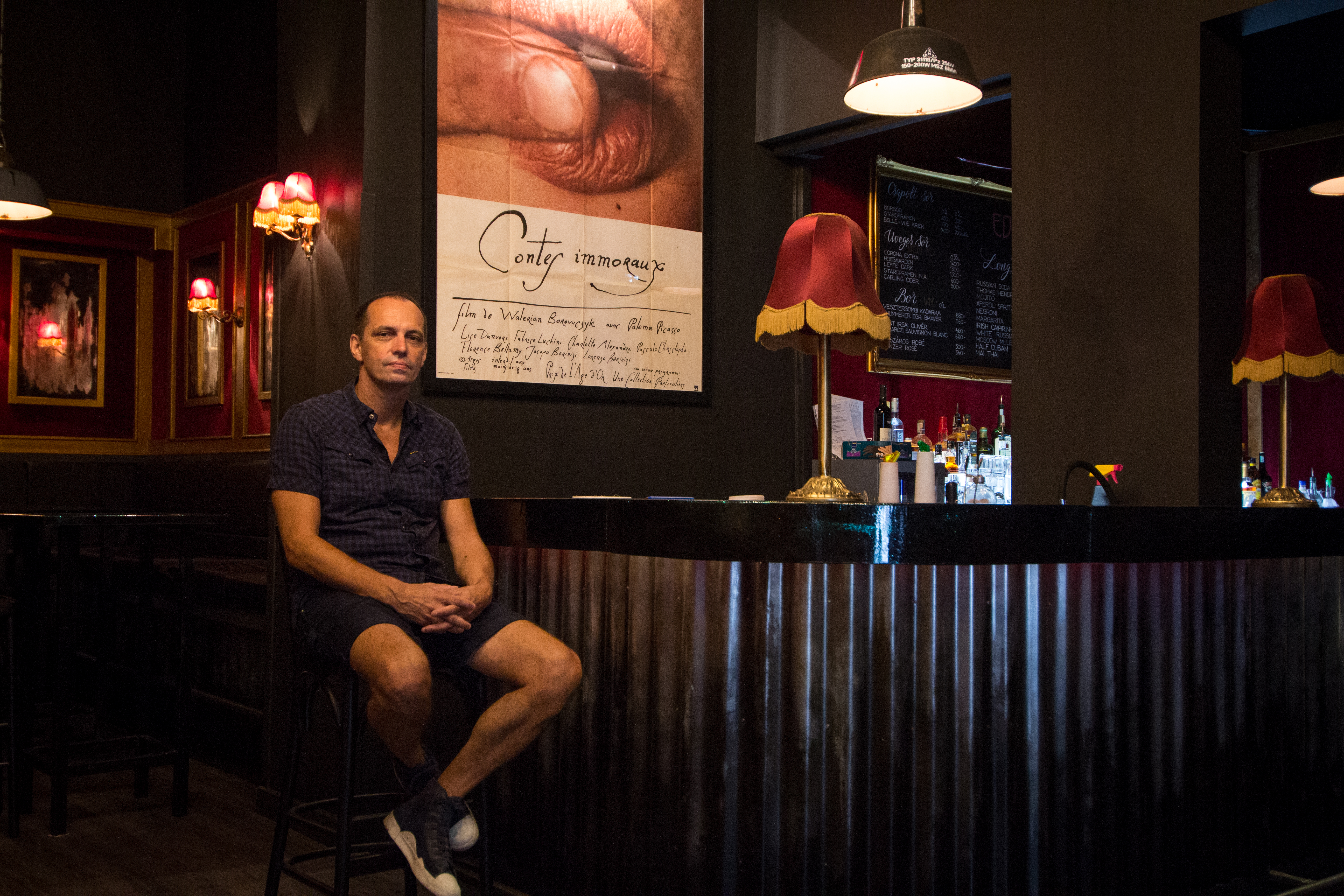Budapest's revered Piaf bar is back in party mode. As the newly renamed Edith, it lining up an event entitled the Spontán Pendli, the Spontaneous Pendulum, a DJ night themed around the bar’s theatrical heritage and location on the Broadway of Budapest, Nagymező utca. ‘Pendli’ is slang for actors taking on different engagements at the same time.
“We want to reconnect with the theatre community,” says DJ Infragandhi, surrounded by the classic yet contemporary Edith interior he helped set up. “We’d be delighted for an actor to take over the DJ decks or give a reading or a performance. We see this as something much more than just another party place.”
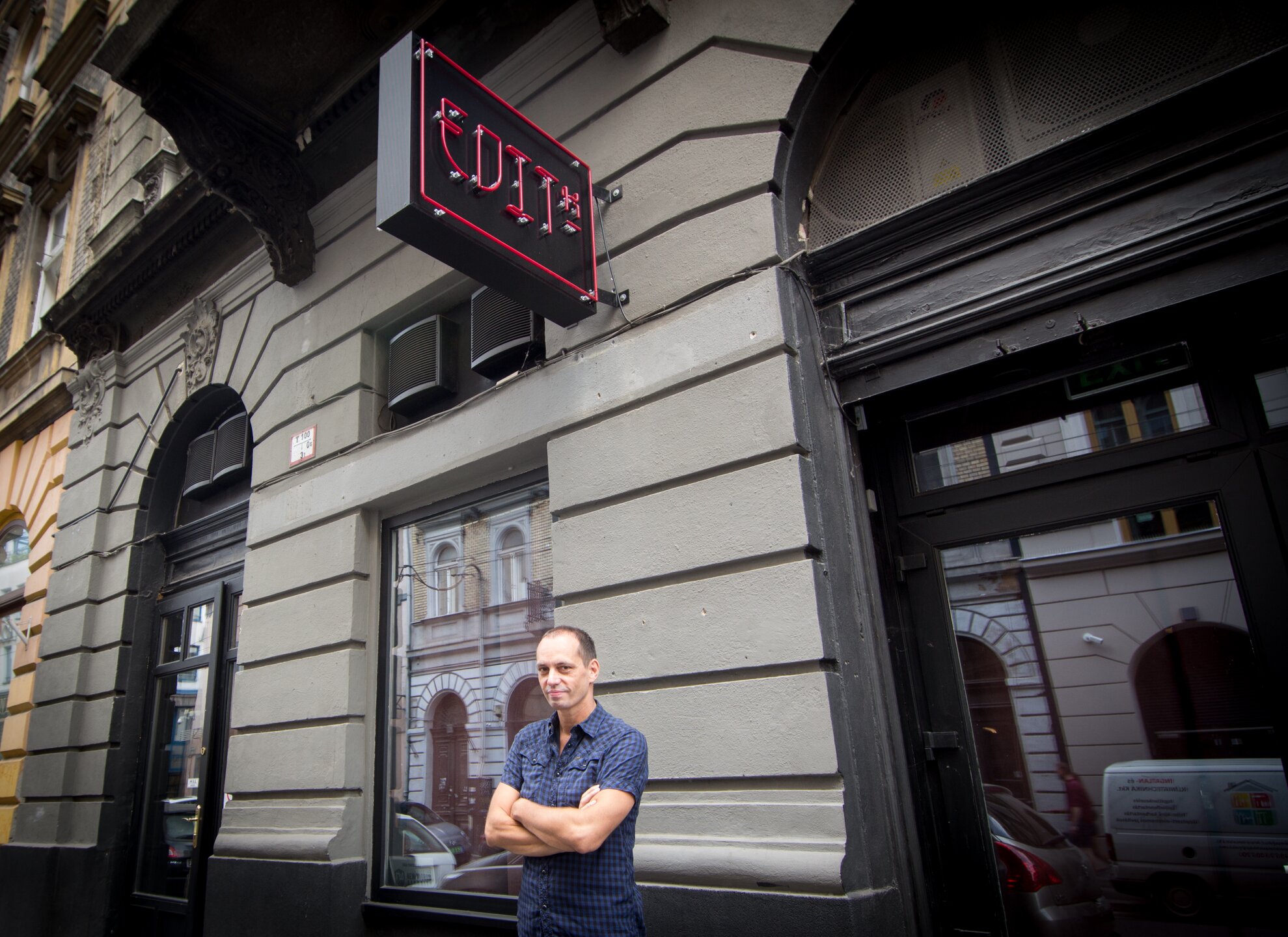
It was award-winning actor Béla Paudits and wife Mária who first opened the Piaf in 1990, with a thespian clientele in mind. With its velvety curtains, faux bordello feel and, most of all, a speakeasy-style window cut into the front door, red-lit with neon outside, the Piaf effortlessly slid into urban myth. If you were in Budapest in the 1990s, you were at the Piaf.
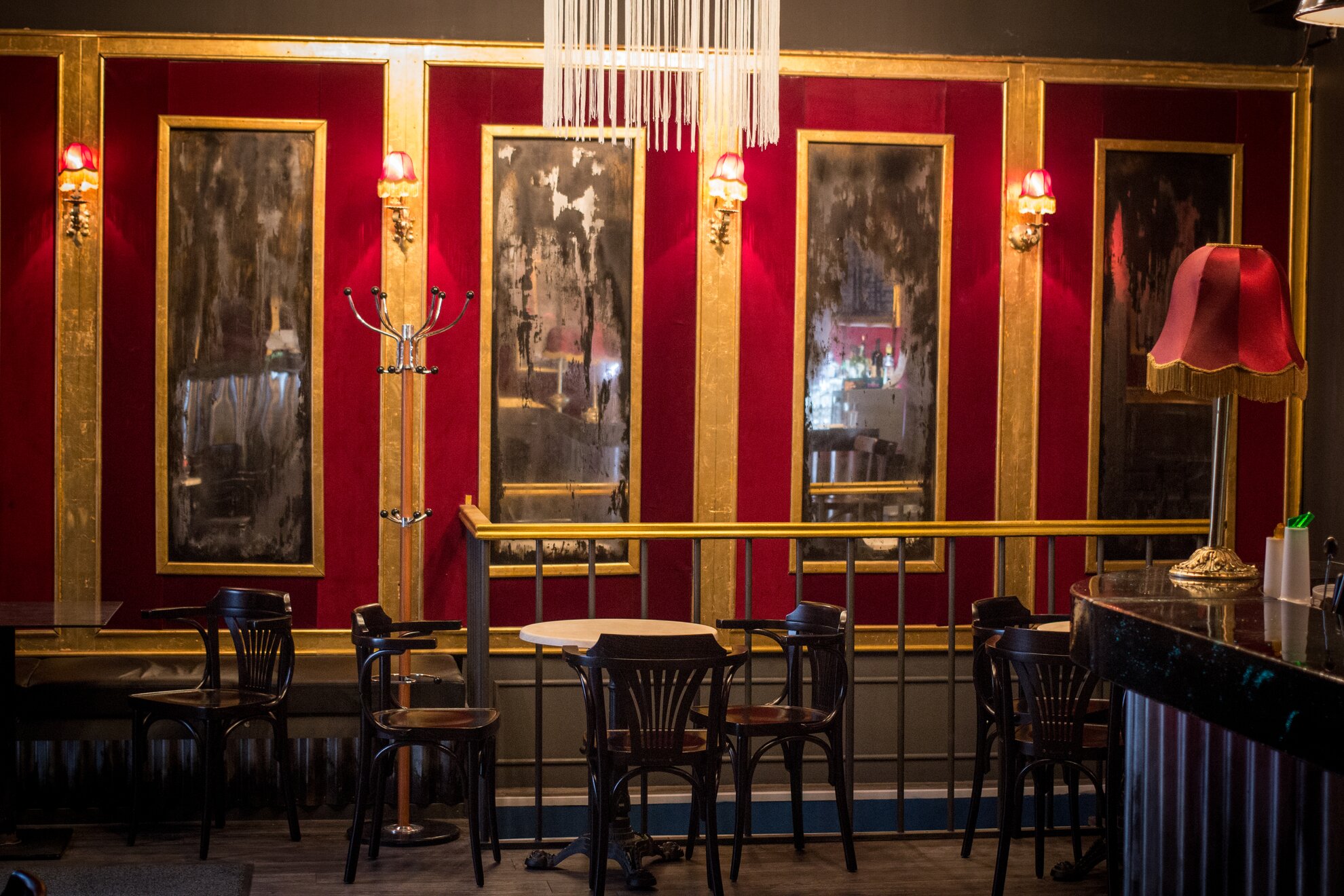
“It was kind of magically surreal,” remembers DJ Infragandhi, who had been invited to spin here by someone from the French Embassy. Or rather someone who had worked at the French Embassy, frequented the Piaf, before being posted home to Paris. He then flew back to Budapest just to stage his birthday weekend at a bar 1,500 kilometres away. Such was the lure of the Piaf.
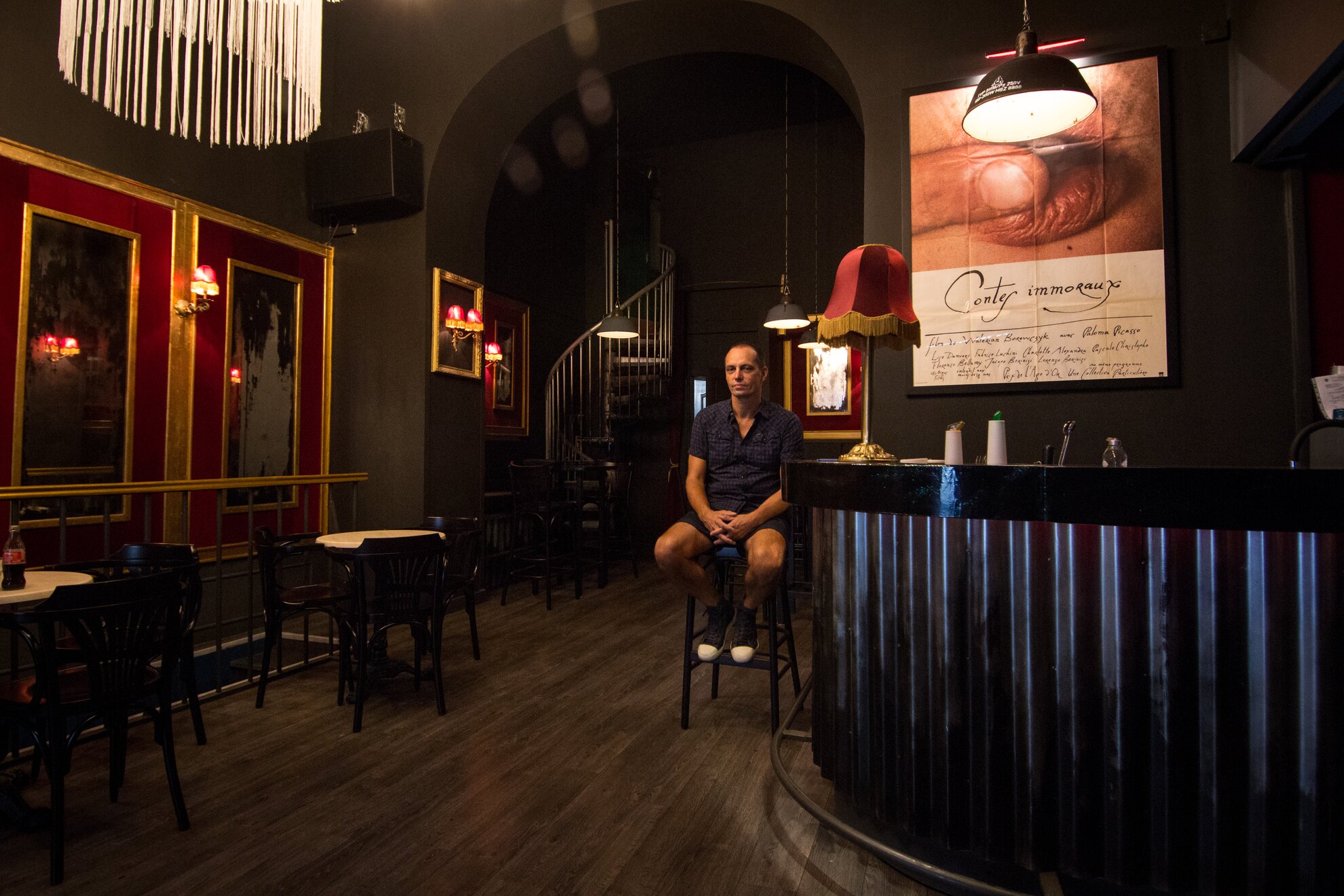
“You never knew what would happen on any given night but whatever what took place would probably be eventful,” says DJ Infragandhi, whose first introduction to the bar was that same night, embassy staff and cultural attachés from the city of Piaf chatted in French around him. Along with, of course, the usual Hungarian regulars.
“Péter Esterházy and his crowd had their regular table,” says the DJ, namedropping the most celebrated Hungarian writer of the later 20th century. “Then there was the spiral staircase to get to the basement…”
The ruin of many an errant nighthawk, the narrow, twisting steps led to another space downstairs, with music and hidden alcoves. And all this when smoking in bars was practically obligatory.
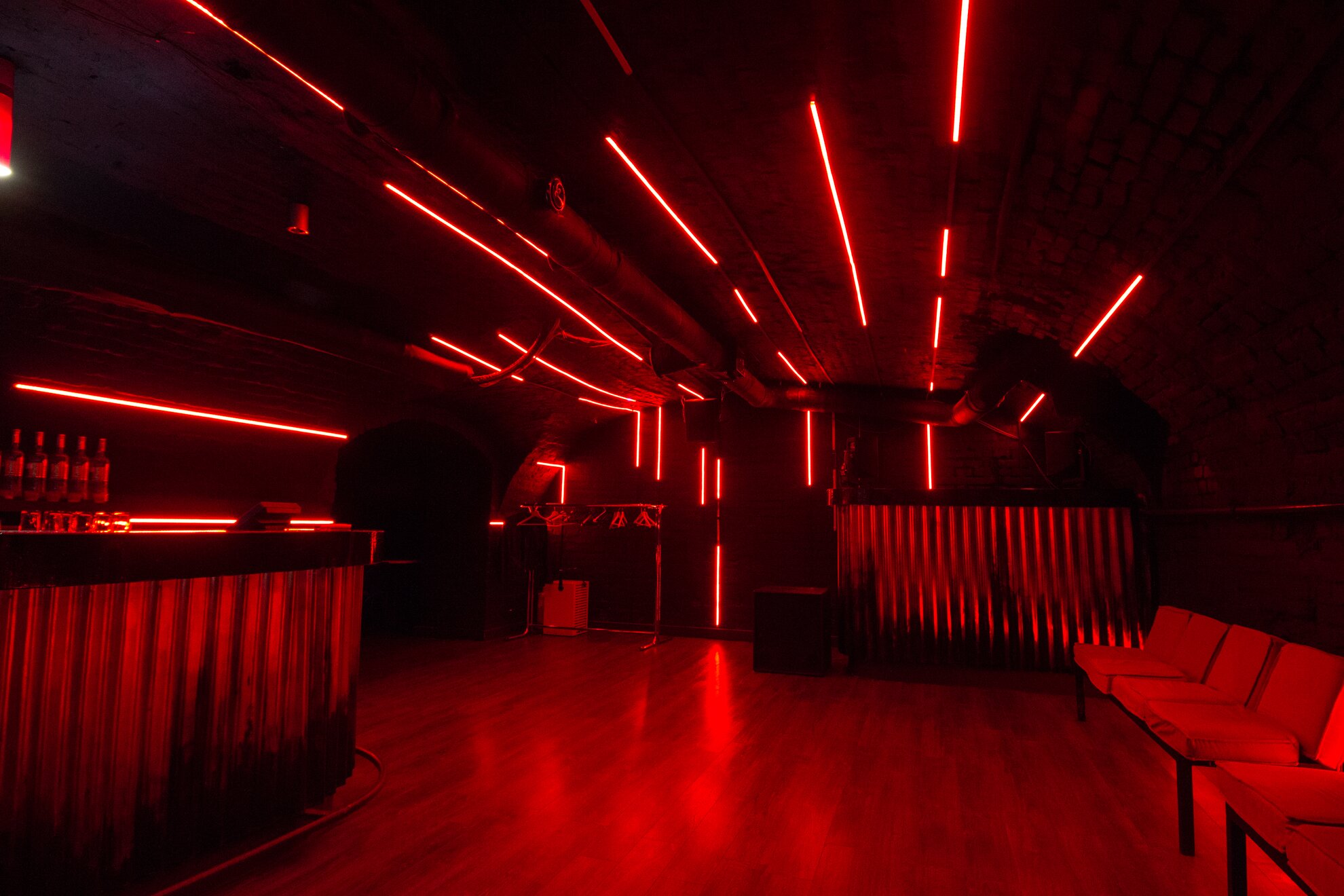
“We’ve kept the spiral staircase, but only the section that led upstairs to some secret hideaway – now off-limits, of course” he laughs. The cellar remains, though, with strip lighting whose colours can be controlled by bar staff, and some of the original seating. A film club is also planned for Sunday nights, showing cultish, sought-after screenings. There's even a dry-ice machine to replicate the smoky '90s.
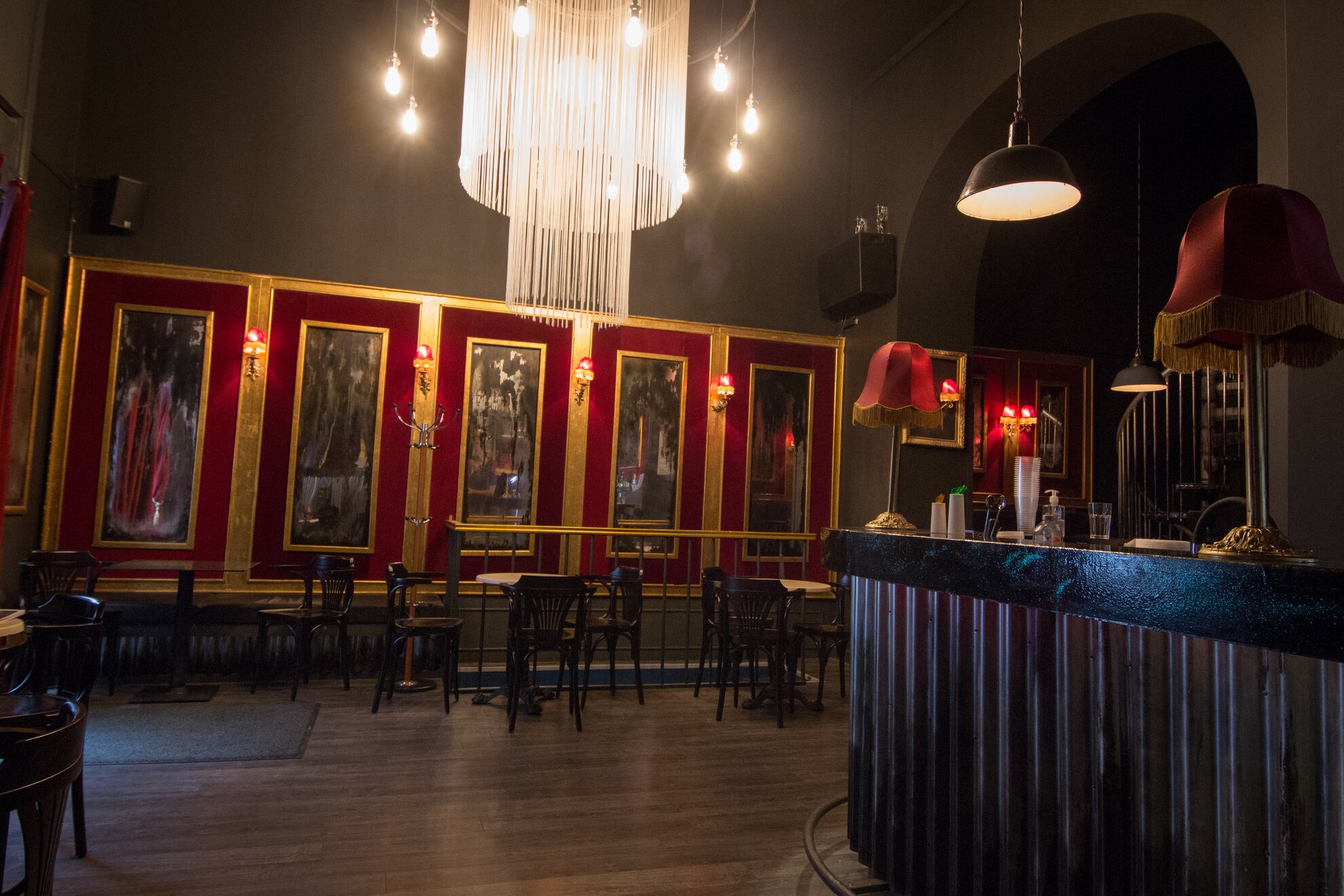
The ‘we’ in question is, mainly, DJ Infragandhi and Csaba Kusztos, a veteran of Budapest’s nightlife scene. Responsible for several seminal venues, most notably the Csa-csa-csa, God rest its soul, a phenomenal party spot built into the Kálvin tér metro underpass, Kusztos was also very familiar with the Piaf and quick to pick up on the news when it eventually closed in 2017. “We had to buy out the firm who last ran it,” explains the DJ Infragandhi, “so it’s been a very convoluted process. Then, when everything was ready, Covid came”.
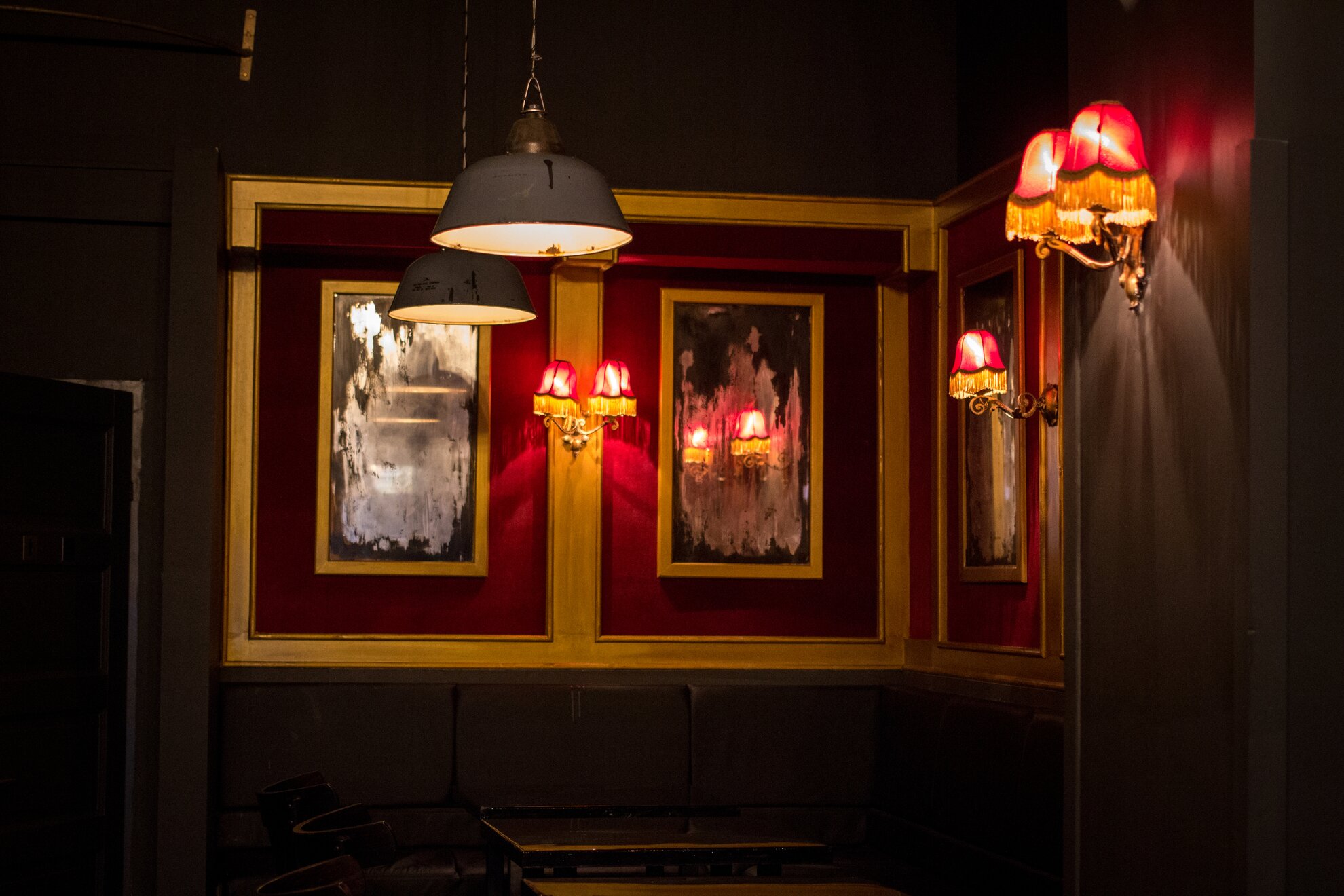
Everything, though, is still in place. For former regulars of the Piaf, entering feels like exploring the Marie Celeste – ghosts of hard-drinking party crews long passed haunt the bars upstairs and down. That treacherous staircase is now a wide set of steps and a pulpit-like DJ booth has been set up in one corner. The speakeasy window is no more.
“We’ve just put out an appeal to everyone who has anything to share about their time at the Piaf. We’re not quite sure what we’ll do with what we get – it could be an exhibition.” One initial reaction, via Edith’s Facebook page, might be typical, though: “I have some. In my head. And they can’t be shared!” Regrets, obviously, are not easy to package and frame.
À propos, the name, Edith. “We wanted to keep that continuity with the past yet create something new, to attract people in their thirties who were never here before – and who might be put off by that slightly austere look of way back when.”
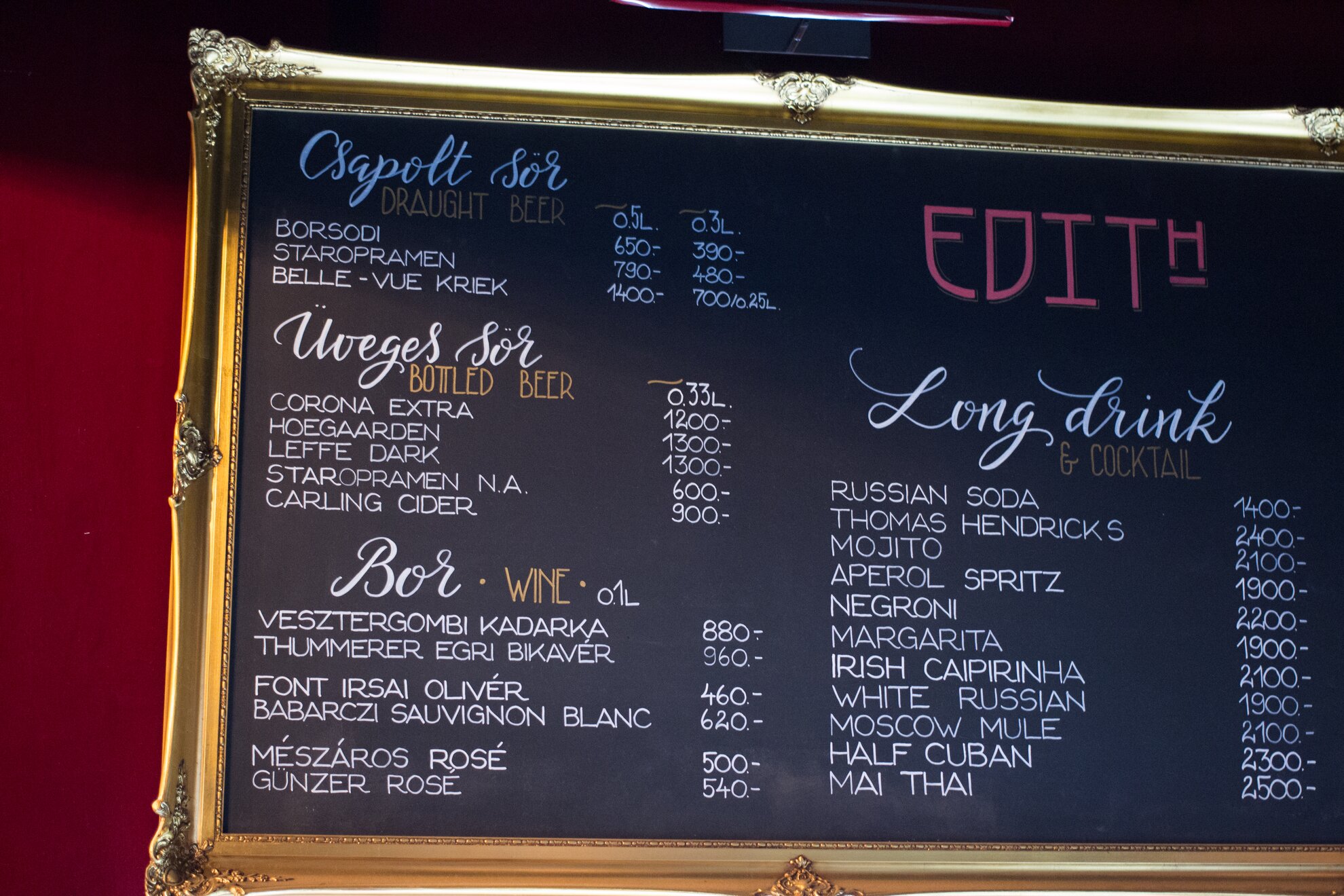
As such, the new décor keeps Edith in character while offering a few bright touches. A large poster for Walerian Borowczyk’s racy film Contes immoraux sets the tone, beside a board of drinks prices offering domestic Borsodi beer (650 HUF), Babarczi Sauvignon Blanc (620 HUF/dl) from Pannonhalma and a Vesztergombi Kadarka red from Szekszárd (880 HUF/dl). Among the selection of long drinks, a White Russian and an Aperol Spritz go for 1,900 HUF.
With rules of socialising in Hungary a moving target, the new team at Edith have no illusions that their best-laid plans may once more come unstuck. For the time being, the idea is to open the doors at 5pm to appeal to the post-work crowd, and run until midnight early in the week, 2am in the middle and 4am at weekends.
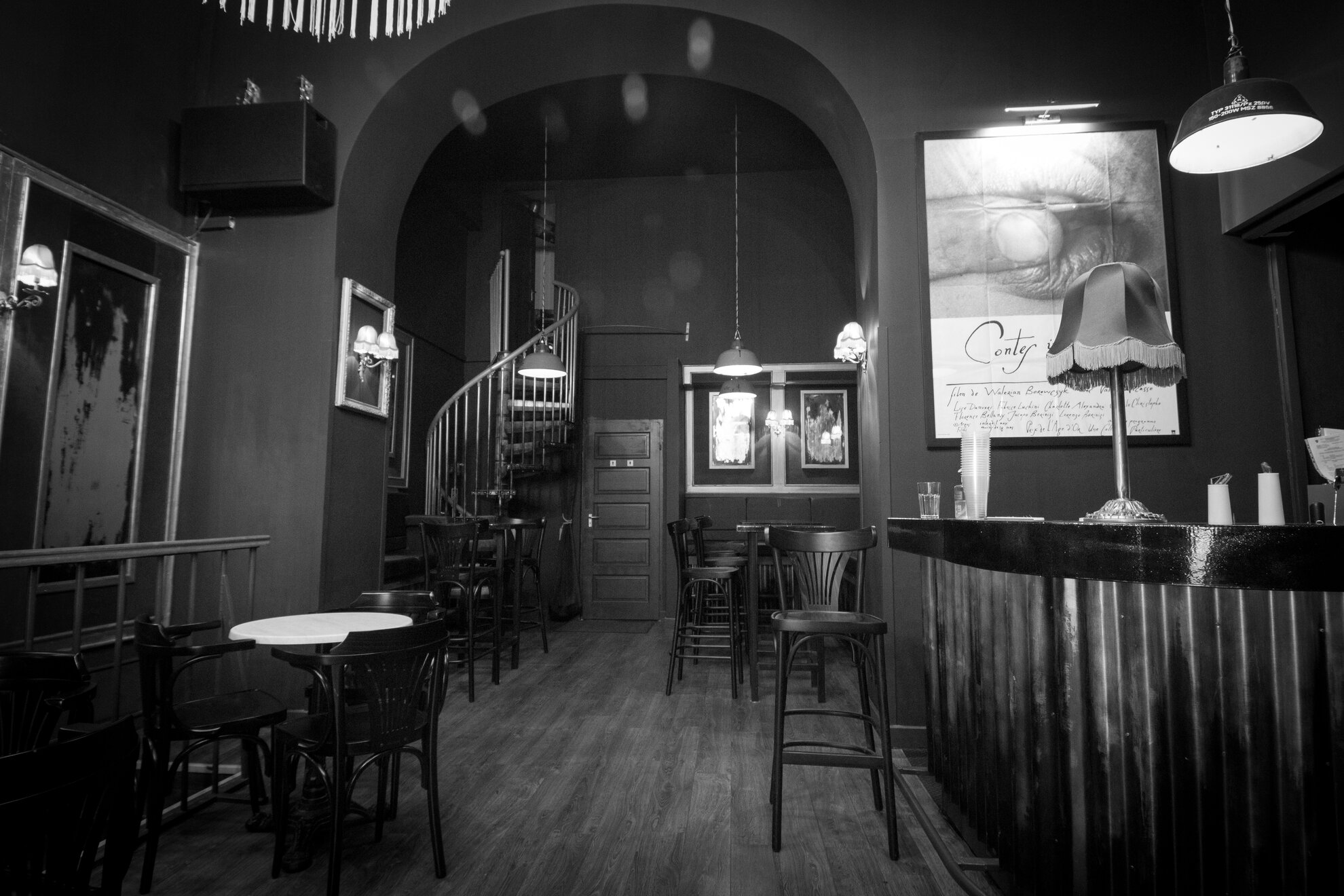
Though the 8am stagger home now belongs to the past, a classy yet seductive nightspot might just be the fillip Budapest needs, in the wake of curfews and shutdowns. That should still leave bags of time for regret.
Edith
District VI. Nagymező utca 25
Send all Piaf mementos to info@edithbudapest
